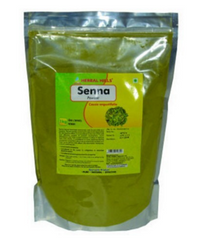Fight constipation with a range of natural and organic remedies
 0
0
 2015-11-20
2015-11-20

Constipation is a disease leading to reduced bowel movements. The frequency shifts to less than three bowel movements per week when a person suffers from constipation. On the basis of duration of disease, it is categorized as chronic or acute. As food goes through large intestine, water is absorbed and stool is formed. But due to bad diet or less water intake, stool movement persist leading to the problem of constipation.
Symptoms of constipation include
• hard stools
• pain during stool excretion
• urge to excrete but unable to do so because of tough stools
• needing help emptying your rectum
• abdominal pain
• sickness and bloating
Constipation is generally prevalent in babies and aged people. But, it can affect anyone irrespective of age. Children prefer to eat junk food and a fiber less diet while elderly people prefer to eat soft food which deficits in fiber, again leading to the problem of constipation.
Constipation is caused by many factors. Some of them are
• Improper intake of food: Foods having low fiber content is the most common cause of constipation.
• Insufficient liquid intake: Liquid content like water and juices provides laxative effects to stool making it softer, thus making bowel movements easier to pass.
• Inactivity: Lack of exercise is also a major cause of constipation. A person suffering from some illness is unable to move, hence, might suffer from constipation.
• Medications: Antacids, pain relievers, iron supplements can affect bowel movements.
• Abuse of laxatives: Overuse of laxatives can damage the nerve cells in colon and hence affect its tendency to contract.
• Ignoring the urge to bowel: People who ignore the urge to bowel often stop feeling the urge with time, which can lead to constipation.
It’s pretty easy to fight against constipation if herbal and organic remedies are adopted on a regular basis. Many laxatives contain these herbal products thus helpful in cleaning the bowel.
1. Buckthorn
This is an admired herbal laxative that is collected from the bark of species of buck thorn tree. It irritates the colon and helps the bowel to promote frequent bowel movements. Advised to intake it for short terms as long term effects can be harmful and create electrolytic imbalance. Long-term use may cause liver injury such as liver failure.
2. Psyllium
Psyllium is a usual fiber laxative that helps in creating bulk stools. Psyllium is frequently used to treat chronic constipation and combined with other laxatives, both natural and synthetic. It may cause nausea, bloating, stomach pain, or vomiting.
3. Rhubarb
Rhubarb is a fruit and used to treat constipation. It has laxative effects because of its tannin content. Recommended for short term basis only.
4. Senna
This herb is used to cure constipation and should be taken into consideration before any medical aid. The most effective part of the plant is fruit. Doses should be light and must be taken only for a short interval. Long-term doses can cause liver damage.
5. Slippery Elm
This magical herb has a history of use for constipation. Slippery elm covers the gastrointestinal tract, so it reduces absorption of some medications if taken at the same time.There are other herbs that don’t cure constipation by stirring up bowel movements, but may help relieve linked indications of constipation. For example, mint tea helps calms nausea and bloating, and witch hazel and chamomile applied externally can prevent hemorrhoid pain and rectal irritation.
In spite of remedies, it is best to make use of most essential remedy for constipation and for preventing it i.e. eating more fiber. Proper intake of legumes, plants, vegetables and fibres will keep you extra fit and healthy.

 Joybynature.com Team
Joybynature.com Team



